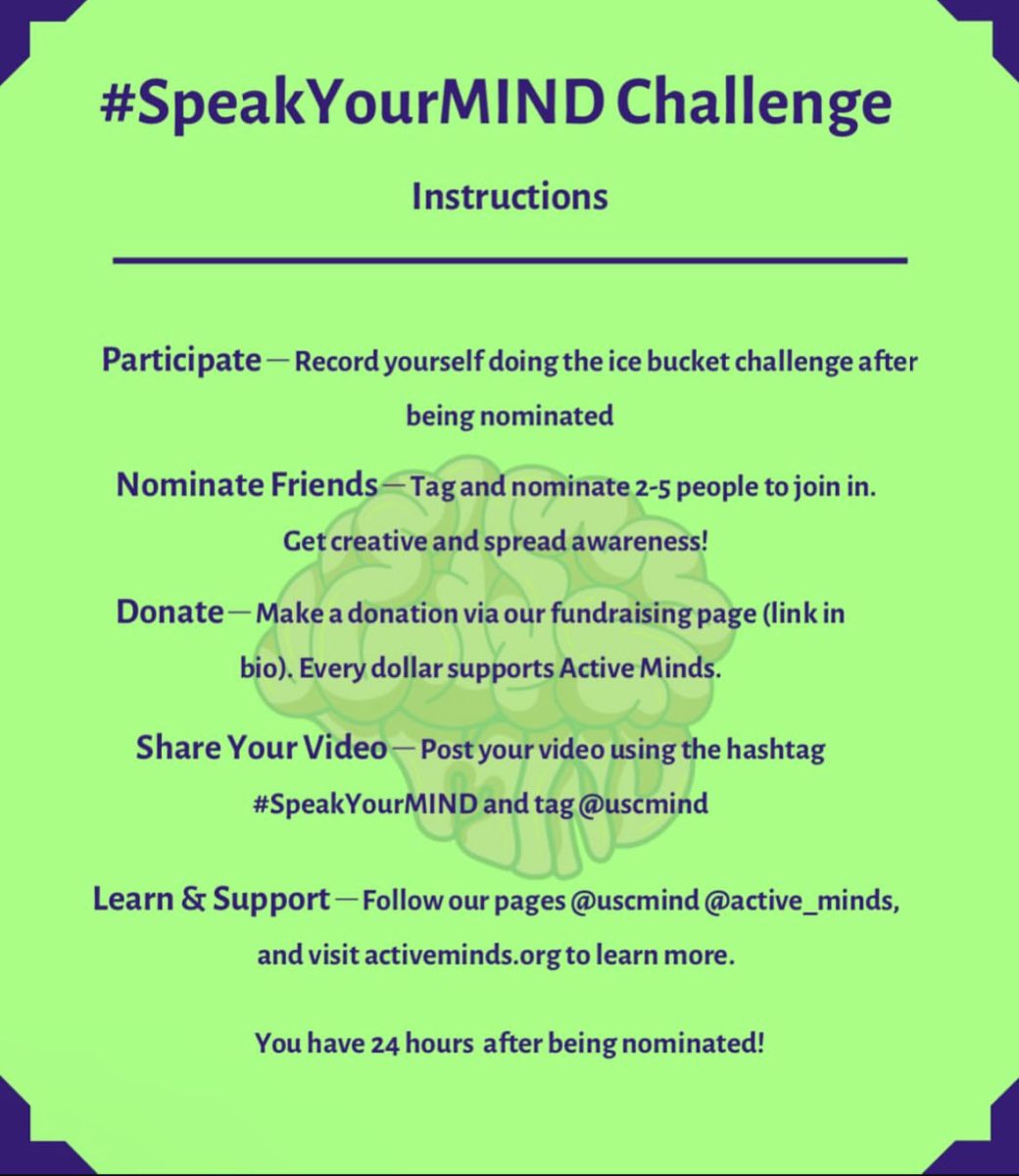Socialism: Point/Counter-Point (article/video)
September 20, 2018
It is the first issue of The LION Newspaper. That means it is also the first Point/Counterpoint, too. Facing off on the topic of Socialism, Managing Editor Greg Smith and Art Director Pilar Valdes tackle this topic. You can also watch a video version of this debate located below. Or, you can watch the video in a new tab on the LTTV’s LTTVtube Youtube account.
Point: An idea whose time has come and gone
By Greg Smith
Wow, socialism sounds awesome! Except that it doesn’t work.
It’s no secret all people are motivated, at least to some degree, by their own self-interest. Some describe that self-interest as “greed,” which is something of a dirty word, because it suggests that anything we obtain is made off of the backs of others. If you got more, I got less.
But this is not the way the economy or the world works. Self-interest is basically a motivation to gain value (usually money) by working to provide things or skills, for which other people are willing to pay money. This is rational. If there is a need for lawyers, college graduates will be motivated to acquire the necessary skills by attending law school and eventually get paid for their work as a lawyer. Individuals voluntarily engage in mutually beneficial trade of their labor or property to serve their rational self-interests. When this happens in free markets, it’s called capitalism.
Now here’s the important part: by acting within this system and by engaging in mutually beneficial trade that is motivated by self- interest, people can actually increase the size of the pie and make the economy bigger. I can grow more corn if I am free to grow only corn, and then trade with others who make, say, clothing. If I have to do both, I will produce less of each. But if I am free to make my own choices and pursue my own interests, I can be more productive. This unleashes enormous creative potential on a world-wide scale. Tapping into the creative potential of rational self-interest, Henry Ford revolutionized automobile production. Medical technology has made huge advances. Steve Jobs grew Apple.
And here is where it gets interesting: when we and others are individually more productive, the world economy, measured as the total amount of goods and services produced and traded, increases in size. This should be evident, as the total amount of wealth in the world is far greater today than it was a century ago. If you doubt me, consider the things that we enjoy and take for granted—automobiles, electronics and an abundance of food—we have far more wealth than our ancestors enjoyed. Socialists incorrectly argue that everything is a zero-sum game—if you get a dollar richer, you must have taken that from someone else—and they say we need to take from those with more and redistribute the wealth so that we will all be equal. This is bunk and breeds class resentment.
Our parents break our worst impulses when we’re very young. We learn that if someone has something we want, it is theirs, and it is not socially acceptable to hit them over the head to take it from them. We should learn this as adults. What belongs to someone else (earnings, labor, time) shouldn’t be taken from them for someone else to use the way they want without permission.
Capitalism makes the world better. As Milton Friedman pointed out, free-market capitalism has done more to eradicate grinding human poverty than any other economic system or government program, period. And it is not even close. According to Oxford University’s Martin Roeser, in 1820, the worldwide rate of persons living in extreme poverty (less than one dollar per day) was a staggering 94%. But as free trade and capitalist principles expanded (along with human liberty and the eradication of slavery in the west), that rate fell to 53% by 1981. That was a remarkable fall in poverty, but things got even better as capitalist principles and individual entrepreneurship were embraced in populous south Asia (including India) and east Asia (China—yes, that China). So by 2011, that rate had fallen to 17% of the world’s population. According to Ben Southwood of the Adam Smith Institute, during roughly the same period of growth (between 1988 and 2008), those in the lower and middle-income brackets enjoyed an approximate 40% increase in real, inflation-adjusted income. Yes, there is still poverty and we have a way to go, but the statistics suggest that we need more free markets and economic liberty, not less. This means more capitalism.
Yes, it’s true that as an economy grows, geometric growth of incomes can result in a greater “wage gap,” measured as the difference, in real dollars, between the highest and lowest incomes. But that occurs in virtually every booming economy as all wages increase. Typically, the “wage gap” gets narrow only in an economic depression, as all wages fall and the economic pie shrinks for everyone. Big gap equals big economy; small gap equals a recession or worse.
By all means, our society needs to have certain social “safety nets,” like welfare, social security, and Medicaid. People fall through the cracks and onto hard times, so we should be ready to pull them up. But the point of a social safety net should be to help people regain their independence and not to turn them into dependents.
A socialist system that breeds and is based on class resentment is not the answer. While “free stuff” sounds great—free health care, free food, and a free iPhone you can take to free college—socialists are slow to provide details on exactly who will pay for all that free stuff. (Economists predict that Bernie Sanders’s proposed “medicare for all” will cost over $32 trillion over one decade. Yikes!). As Margaret Thatcher observed “The trouble with Socialism is that eventually you run out of other people’s money.”
Socialist systems bring higher taxes and poor economic performance while they destroy incentives for productivity and creativity. Venezuela, one of the most oil-rich nations on earth, has a dumpster-fire economy and stands as a tragic example of socialism’s true potential. Human beings should be permitted to pursue their individual interests and to enjoy, to as full a degree as possible, the fruits of their labors. If this doesn’t make perfect sense, go to your counselor, now, and ask to be placed into every economics course LT has to offer.
Counter-point: The little ism that could
by Pilar Valdes
In the 2016 Olympics, American runner Abbey D’Agostino fell during the 5000 meter heat and New Zealand’s Nikki Hamblin stopped to help her up and finish the race together. Hamblin threw away her chances of Olympic glory to help another runner; one who wasn’t even on her team. This is essentially what socialism is in a nutshell. Socialism is putting your needs aside to come to the aid of someone who is down, and knowing that if you were in their shoes, they would do the same for you. This is a system that needs to be implemented in the U.S..
Now before I get into the nitty gritty of this argument let’s take a trip back to seventh grade history class and recap the difference between socialism and communism. The two are often confused because of their focus on social equality. Communism advocates for a complete class overthrow so that the people can own the means of production. Socialism differs in that the government owns the means of production.
Next I will tell you that, yes, socialism in its purest form does not work. But I am not advocating for socialism in its purest form, I am an advocating for democratic socialism, where the government does not own the means of production, but rather provides basic rights and necessities to its constituents. This is a system that works, and it works much better than capitalism.
The fact of the matter is that the system of capitalism that exists in America today isn’t working. The rich are getting richer. The poor are getting poorer. Our environment is being ruined. Sure, it’s a great system for straight white males without any kind of visible disability. But for the rest of us, those of us who are at a systematic disadvantage, capitalism isn’t so great.
Capitalism and classical liberalism both advocate for a free market. Let me say that again: a free market. Capitalism is not a form of government: it is a system of economics, that’s why it isn’t working. Treating the United States as a business rather than what it really is, a country of people with basic needs and rights, is toxic in a myriad of ways, mainly being that it is ignoring the fact that there is more to a person’s value and life than money.
I’ve been saying the phrase basic rights and needs a lot; let me clarify what that means. You have the right to an education. You have the right to healthcare. This is never explicitly stated in the Constitution, but our good friend Thomas Jefferson made it very clear that everyone has the right to “life, liberty and the pursuit of happiness” in the Declaration of Independence. How can someone have a fulfilled life if their healthcare bills are so outrageously high that they can’t pay for them? How can someone pursue happiness if they can’t pay for college and can’t find a job that will hire them with only a high school diploma? By not providing these services to its people, the government is taking away the American people’s basic rights, which also, according to Jefferson, allows us the right to rebel and put a government in place that does provide these rights.
The most frustrating part about the American people’s reluctance to move towards a more socialist form of government is the argument that is brought up time and time again: that socialism will result in higher taxes. This is true. But, as Benjamin Franklin once said: “only two things in life are inevitable: death and taxes.” Yes, our taxes would be higher, but its for a good reason. And realistically, the government could reduce spending on the military and increase spending on healthcare and education. There are ways to make this system work, but the only way it will work is if the mindset of the American people switches from a selfish one based on personal interest to one where you care about others and their well being. Democratic socialism isn’t twisted or wrong, unless you consider helping a child whose family can’t pay for his cancer treatment twisted and wrong, in which case you may need to take a step back to question your morals.
Ferris Bueller once said “ A person should not believe in an -ism, he should believe in himself.” I agree with the great philosopher that is Matthew Broderick and iconic 80s movies. Because socialism is more than an “-ism;” it is a mentality. At the end of the day, we need to change our mentality. Socialism is simply a state of mind in which the needs of others come before our own, this is a state of mind that allows opportunities for those who under a capitalist system would otherwise be left to the wayside to fend for themselves. It is a system that no matter how you spin it, is morally right. At the end of the day, I’d rather know I lived life as a good person than made a lot of money at the expense of others.





















![Movie poster for '[Rec]" (2007).](https://www.lionnewspaper.com/wp-content/uploads/2023/04/rec-640x900.jpg)





